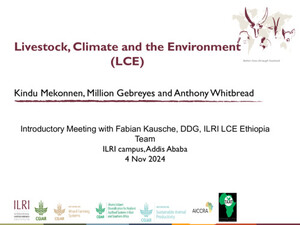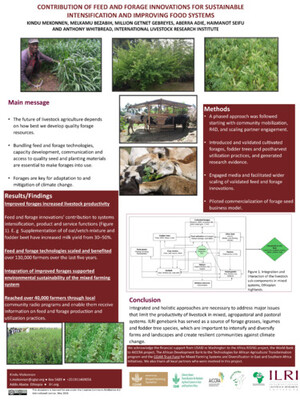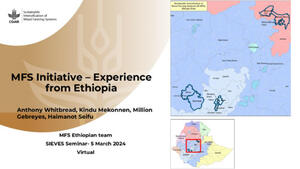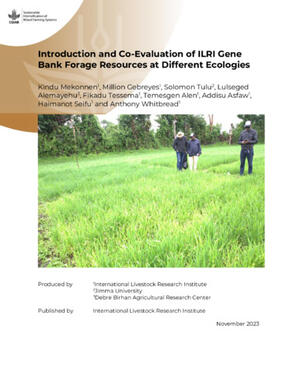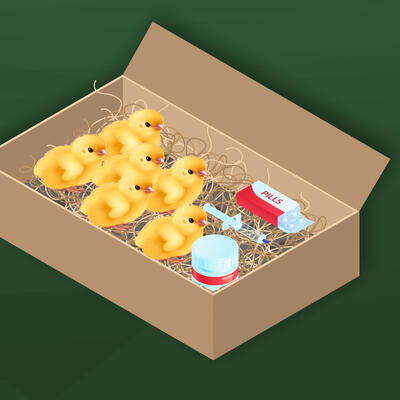
Expanding use of solar irrigation pumps in Ethiopia
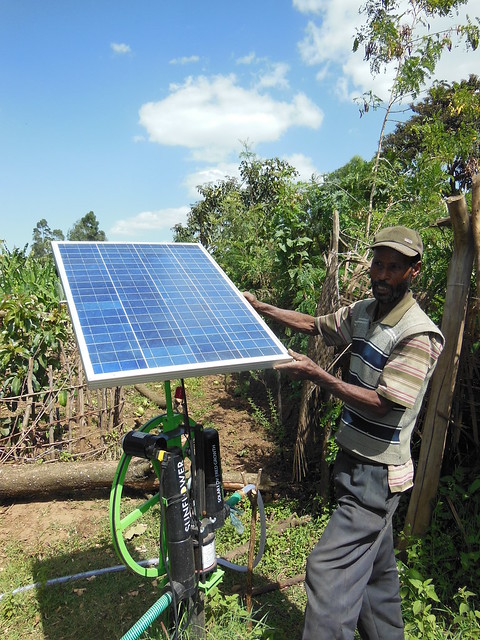
A farmers in Lemo woreda with his newly installed solar irrigation pump (photo credit: IWMI/ Petra Schmitter).
In the first phase of the Africa RISING project in the Ethiopian highlands, the International Water Management Institute (IWMI) investigated technologies that could improve farmers’ access and use of the available water in their surroundings for better agricultural production and productivity. Water scarcity and lack of technologies for accessing and managing available water are major constraints to farming in Ethiopia.
Starting in August 2015, IWMI introduced and tested the effectiveness of water lifting technologies such as solar-powered irrigation pumps that help farmers’ easily access water from near their farms. The solar pump-based irrigation was tested in the Southern Nations Nationalities and Peoples Region. Farmers from the Upper Gana and Jawe kebeles used these pumps to irrigate fodder (oats and vetch mixed cropping) for their animals and fruits and vegetables farms in the dry seasons.
An assessment showed that most of the farmers used the pumps to lift water for domestic purposes and agriculture across seasons. They claimed improved production and productivity; saved labour and time and improved access to clean water.
To expand these benefits to more farmers, IWMI, the Solar Development PLC (the main supplier of solar pumps in Ethiopia) and partners are working together to accelerate wider adoption of the technology as a key goal of the second phase (2017-2021) of the Africa RISING project.
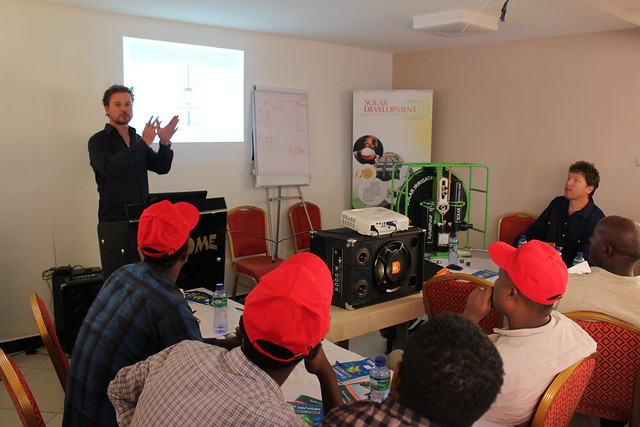
Solar Irrigation Pump SF1 Technical and Business Skills training (photo credit: Solar development PLC /Muna Abdullahi).
The Solar Development PLC organized a ‘Technical and Business Training on Solar Irrigation Pump SF1’ training for potential partners in Addis Ababa in April 2017. It included sharing of experiences from the first phase of the Africa RISING and Livestock and Irrigation Value chains for Ethiopian Smallholders (LIVES) projects. The training combined both theory and practical sessions on the basic principles of pumping, irrigation techniques and benefits of solar irrigation pump using the SF1.
The first part of the training was a workshop held 19–22 April. Forty participants including representatives from IWMI, the Agricultural Transformation Agency, the Organization for Rehabilitation and Development in Amhara Region, regional water and energy officers, microfinance institutions, NGOs and current and potential partners attended. The second part was a field training at Hosanna from 24–27 April 2017 with practical lessons on SF1 solar irrigation pump installation, use and maintenance. It also included visits to sites were IWMI has installed the pumps.










